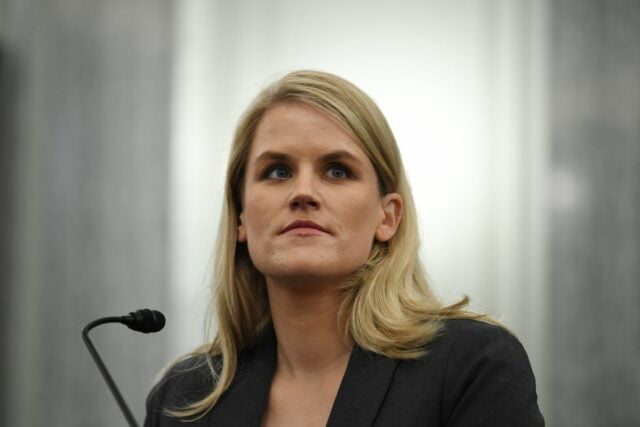Facebook has been treading dangerous waters in the past decade. With the company growing over to one of the most influential platforms, one wrong source of information or incitement can spread like wildfire.
Facebook Papers
Facebook employees have time and again warned their supervisors about the platform’s effects on society and politics across the world. According to them, their inability to effectively moderate content has magnified those dangers worldwide.
All of this is documented in “The Facebook Papers”, a bunch of internal documents that came to light to the Congress of the United States, by whistleblower Frances Haugen, a former Facebook product manager.
Haugen claimed that the bunch of statements and data has virtual proof that Facebook’s leaders have put the company’s profits and brand image ahead of public good and even risked the incitement of violence and harm.

There are several aspects to take away from the leaked papers. The first of them is the employees debating Facebook’s policies internally. Upon the defeat of Trump, the supporters took to rioting at the US Capitol on January 6th.
Despite banning Donald Trump permanently, the rioters gathered at the venue, ushering violence. In the weeks leading to the violence, Facebook had been trying to defuse the ticking bomb by banning Trump supporters and the groups that they formed.
According to NPR reporters, the company repeatedly shut down groups affiliated with the Stop the Steal movement but there were tens of thousands of users who were attracted to these conspiracy theories.
Facebook was unable to contain the incitement and maintain the pace as and when the violence surged. Facebook employees had vented their anger and frustration. “We’ve been fueling this fire for a long time and we shouldn’t be surprised it’s now out of control”, one employee wrote on an internal message board.
Also Read: Facebook To Change Its Name; Internet Makes Some Hilarious Suggestions
More Aspects
Another aspect on which the Facebook Papers shed light was their separate set of content standards for high-profile accounts, wherein they defend false and inflammatory statements. Their algorithm that promotes content is based on reactions and more often than not tends to promote content by various political leaders who spread misinformation and incitement.
Hitting closer to home, Facebook had a test account set up to determine how the tools provided affect people in its most important market; within less than a month, the fictional user’s account devolved into a flurry of fake news and incendiary images.
Mark Zuckerberg, Facebook’s CEO, had personally agreed to adhere to demands from Vietnam’s ruling Communist Party to censor anti-government dissidents or risk getting knocked offline in one of Facebook’s most lucrative Asian markets.
Facebook’s demographic usage is between the ages 40-50 and the younger generations prefer Instagram as an alternative. However, a previously leaked document showed that 13.5% of British teen girls in a survey said their suicidal thoughts increased frequency after they joined Instagram. Since Facebook owns the platform, herein lies another case of them prioritizing profit over the well-being of children and all users.
While the Facebook Papers drew attention to the wrongdoings in the States, it still laid insight into the activities that Facebook fosters and proliferates. “Two years ago, Apple threatened to pull Facebook and Instagram from its app store over concerns about the platform being used as a tool to trade and sell maids in the Mideast,” The Associated Press reported.
Facebook struggles with the nuances of dialects in Arabic in the region, which is one of the world’s most spoken languages. Facebook “doesn’t have anyone who can speak most of them or can understand most of them in terms of sort of the vernacular,” Horwitz told NPR. “And it also doesn’t have a system to route content in those dialects to the right people.”
The problem extends further into Myanmar and Afghanistan, where this loophole makes the inflammatory posts flourish, whereas, in Syrian and Palestinian territories, ordinary speech is suppressed with a blanket ban on several words.
Metaverse Rebrand
All of the aforementioned callouts in the Facebook Papers, along with an intention to move forward responsibly is what the Metaverse is about. Although there have been whispers about rebranding coming afoot, this whistleblowing incident has expedited the process of rebranding.
Facebook has already announced plans to invest $50 million as part of its efforts to create a ‘responsible’ metaverse, with plans to create almost 10,000 jobs in Europe as a part of the Metaverse expansion. Facebook’s Oculus VR gaming platform is another aspect that they want to push through into the Metaverse.
The word “metaverse” is a term borrowed from science-fiction and refers to a future version of the internet that people access using VR and AR technology, rather than laptops and phones.
In a Founder’s Letter, Zuckerberg says, “Our mission remains the same — it’s still about bringing people together. Our apps and their brands aren’t changing either. We’re still the company that designs technology around people. But all of our products, including our apps, now share a new vision, to help bring the metaverse to life. And now we have a name that reflects the breadth of what we do.”
With logical reasoning, this rebranding is nothing more than a premature stunt pulled off in order to avoid a PR fiasco. It is currently deemed to be more science fiction than scientific reality and is still years away from having mainstream users in the Virtual and Augmented Realities of the Metaverse.
Image Sources: Google Images
Sources: NPR, Economic Times, Business Insider
Connect with the Blogger: Shouvonik Bose
This post is tagged under: Facebook, meta, rebrand, name, change, Mark Zuckerberg, Chief Executive Officer, Connect conference, company, social media, platform, website, parent company, Instagram, WhatsApp, Oculus, metaverse, online, Virtual Reality, Augmented Reality, digital avatars, European Union, whistleblower, Frances Haugen
Also Recommended:
Facebook Knew Instagram Was Toxic For Teens, Especially Girls, But Chose To Ignore It: Report